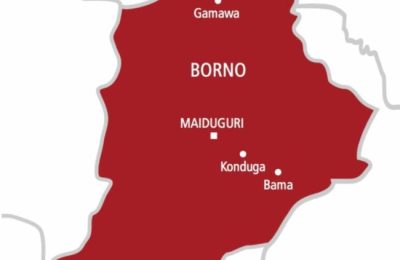The Nigeria Customs Service (NCS) on Wednesday reeled out guidelines for corporate organisations interested in benefiting from the zero duty rate policy of the Federal Government on imported food items.
In a statement signed on Wednesday by the National Public Relations Officer of Customs, Abdullahi Maiwada, the Customs said that only companies incorporated in Nigeria and have been operational for at least five years, and must have filed annual returns and financial statements and paid taxes and statutory payroll obligations for the past five years, will benefit from the zero duty rate for food importation policy of government.
According to the Customs statement, “Drawing from the Presidential directives aimed at alleviating the hardship faced by Nigerians due to high prices of essential food items, the Nigeria Customs Service (NCS) is pleased to announce that His Excellency, the President of the Federal Republic of Nigeria Bola Tinubu through the Honourable Minister of Finance and the Coordinating Minister of the Economy, Olawale Edun has approved the regulation for the implementation of a Zero Percent Duty Rate (0%) and Value Added Tax (VAT) exemption on selected basic food items.

“This policy is effective from 15th July 2024 and will remain in force until 31st December 2024.
“This measure aims to mitigate the high cost of food items in the Nigerian market by making essential commodities more affordable for citizens.
“The initiative is part of the government’s broader efforts to address food security challenges and ensure that basic foodstuffs are accessible to all Nigerians.
“However, it is important to emphasise that while this temporary measure is intended to address current hardships, it does not undermine the long-term strategies put in place to safeguard local Farmers and protect Manufacturers.

“It is pertinent to note that the implementation of this policy will focus on addressing the national supply gap.
“To participate in the zero-duty importation of basic food items, a company must be incorporated in Nigeria and have been operational for at least five years.
“It must have filed annual returns and financial statements and paid taxes and statutory payroll obligations for the past five years.
“Companies importing husked brown rice, grain sorghum, or millet need to own a milling plant with a capacity of at least 100 tons per day, operated for at least four years, and have enough farmland for cultivation.
“Those importing maize, wheat, or beans must be agricultural companies with sufficient farmland or feed mills/agro-processing companies with an out-grower network for cultivation.
“The basic food items eligible for the zero percent duty rate are as follows:
S/N Item Description ECOWAS CET H.S. Code Previous Duty Rate + Levy New Duty Rate
I. Husked Brown Rice 1006.20.00.00 30% 0%
II. Grain Sorghum – Other 1007.90.00.00 5% 0%
III. Millet – Other 1008.29.00.00 5% 0%
IV. Maize – Other 1005.90.00.00 5% 0%
V. Wheat – Other 1001.19.00.00 20% 0%
VI. Beans 0713.31.90.00 20% 0%
“The Federal Ministry of Finance will periodically provide the NCS with a list of importers and their approved quotas to facilitate the importation of these basic food items within the framework of this policy.
“The policy requires that at least 75 percent of imported items be sold through recognised commodities exchanges, with all transactions and storage recorded.
“Companies must keep comprehensive records of all related activities, which the government can request for compliance verification. If a company fails to meet its obligations under the import authorisation, it will lose all waivers and must pay the applicable VAT, levies, and import duties.
“This penalty also applies if the company exports the imported items in their original or processed form outside Nigeria.
“The Nigeria Customs Service, under the leadership of Comptroller General of Customs, Bashir Adewale Adeniyi MFR, remains committed to supporting government policies to enhance food security and promote economic stability. The Service urges all stakeholders to cooperate fully in implementing this initiative for the benefit of all Nigerians.”







